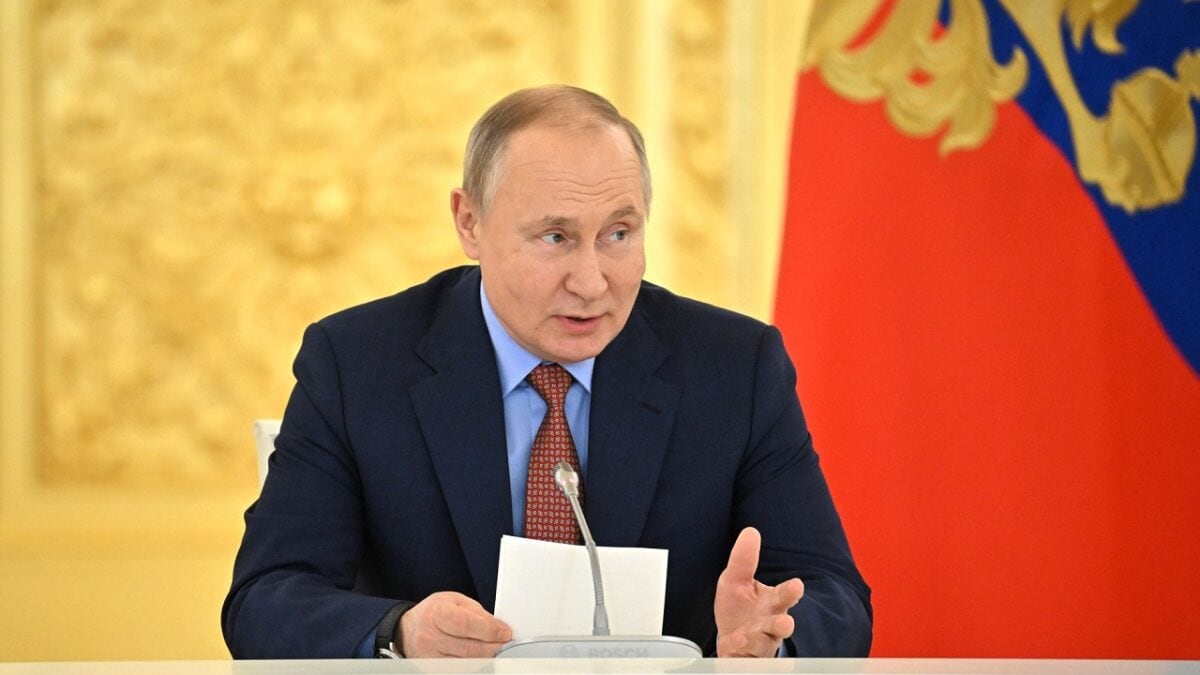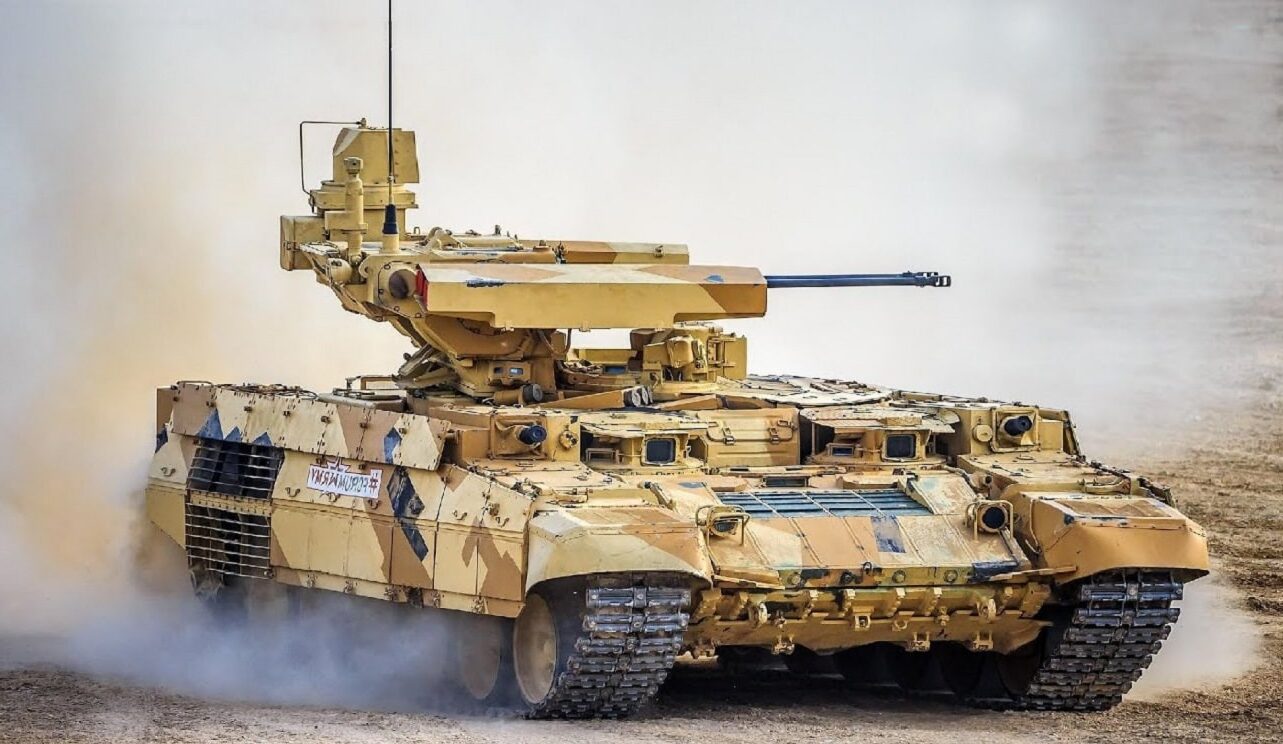The commander of Russian forces in Ukraine claimed today that his forces had chosen to withdraw from Kherson for positions he said were more defensible on the east bank of the critical Dnipro River. Aleksey Arestovich, Senior Advisor to Ukrainian President Volodymyr Zelensky, fired back that Russia was being “driven out of Kherson by Ukrainian Defense Forces.”
The circumstances and purposes of Russia’s looming withdrawal remain murky. Still, one thing is clear: if Russian forces follow through and leave, it would represent another major setback for Putin’s forces and a shot in the arm for Zelensky’s.
At a Moscow press event on Wednesday, Russian Gen. Sergei Surovikin told Russian Minister of Defense Sergey Shoigu that Surovikin had assessed that holding Kherson would be too costly, and recommended Shoigu allow him to withdraw to “preserve lives of servicemen and combat readiness of forces.” The Russians would reposition on the eastern bank of the Dnipro River to previously prepared defensive positions, the general claimed.
Another senior advisor to Zelensky, Mykhailo Podalyak, tweeted that “We see no signs that Russia is leaving Kherson without a fight” and would rely on “intelligence data” and not “staged TV statements.” The circumstances, methods, and timing of Russia’s reported withdrawal from Kherson was not announced by Shoigu, so some skepticism is warranted. Until Russian soldiers actually withdraw and Ukrainian troops reoccupy the city, withdrawal remains a claim only.
It is possible, as many have noted, that this could be a ploy to lure Ukrainian forces into a trap in which Russia could launch preplanned artillery concentrations on Ukrainian troops once they come out into the open. Given Russian military performance since February, however, it is very possible Surovikin’s claims could be true.
After initially flooding Ukraine and occupying large swaths of territory, Russian troops were halted in the early days of the war and force to withdraw from Kyiv and Kharkiv after suffering egregious casualties from the Ukrainian defenders. Then in September Ukrainian troops forced Putin’s army to cede massive swaths of territory in the Izyum front, driving the Russians back to their present positions near Svotavo.
One of the key differences now – and part of the mystery – is that Russia’s claims it will withdraw come, not as a result of Russia suffering significant battle losses, but while Zelensky’s troops are still a distance from the city and are not presently posing a direct threat to the Russian position in Kherson. Though that could support the theory that the claim of withdrawal is a ruse, other evidence suggests Surovikin’s declarations of withdrawal may be genuine.
Russia has been preparing defensive positions on the east bank of the Dnipro for weeks, and has evacuated tens of thousands of mostly Russian-speaking civilians from the city. Last week there were reports that some of Russia’s forward military checkpoints in Kherson had been abandoned. These actions indicate a pre-planned, methodical withdrawal. From a strictly military point of view, the Russian decision makes sense.
By withdrawing in order, Russia would be able to preserve all its fighting force, leave with all its equipment, ammunition, and fuel, and occupy prepared defensive positions on the east bank of the river. From this position, it would be nearly impossible for the Ukrainian troops to launch any new offensives against the Russian lines, as they would be blocked by the Dnipro river.
If it’s true that Russia is massing forces for a major winter offensive, then the preservation of these forces out of Kherson would add to the potential striking power in the Donbas, Kharkiv, or western directions. Thus, withdrawing from Kherson now could preserve Russian strength for a bigger offensive that is still to come. Yet regardless of what may happen later, from a political and morale point of view, a Russian withdrawal from Kherson would prove to be a major loss for Putin and another huge gain for Zelensky.
Already Russian forces are getting pummeled in western media for “abandoning” Kherson without a fight. Even pro-war Russian war-bloggers are angry with the Kremlin’s decision. If Russia really does leave the city, you can bet Zelensky will make a major production for global consumption when Ukrainian troops reenter Kherson, deepening Putin’s shame. Coming on the heels of Ukraine’s recapture of large swaths of territory in Kharkiv in September, this will undoubtedly prove to be a major boost to the morale of the Ukrainian troops throughout the conflict zone.
Yet as I often write in these pages, this is a war, not a battle. While Putin will be humiliated by this latest withdrawal, there are reportedly hundreds of thousands of new troops preparing for a major winter offensive. Whether Russian troops left Kherson or retained control at a high cost, the war will likely come down to what happens this winter and spring.
If Russia is able to steamroll Ukrainian troops when they bring their new firepower to bear, Zelensky could one day be forced into a negotiated settlement whether he wants it or not. But if Ukrainian troops, with NATO’s help, are able to absorb the blow and prevent any further loss of territory, it will likely be Putin who is forced to sue for peace, as he will have used all his mobilized power; its doubtful he could survive domestically if he were to try and order an additional mobilization if the first one fails.

Russian President Putin. Image Credit: Russian Federation.
Given the significant damage already done to Ukraine’s energy infrastructure from Russian attacks in recent weeks, the possibility that Europe suffers a severe energy crisis of their own this winter, and that the West writ large could endure major economic troubles, it is equally far from certain Ukraine will be able to withstand Putin’s winter offensive. Ultimately, whether Russia evacuates its troops from Kherson or stays to fight might end up being a minor footnote in the history of the war.
Now a 1945 Contributing Editor, Daniel L. Davis is a Senior Fellow for Defense Priorities and a former Lt. Col. in the U.S. Army who deployed into combat zones four times. He is the author of “The Eleventh Hour in 2020 America.” Follow him @DanielLDavis.

